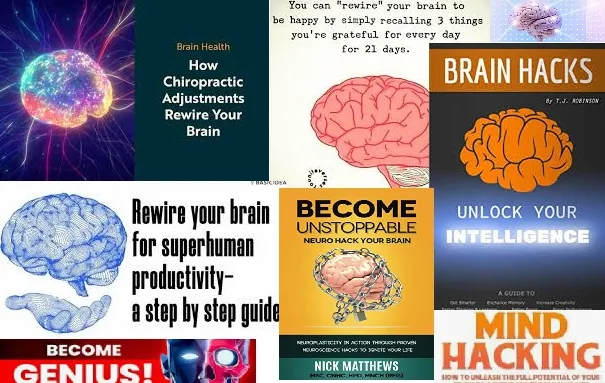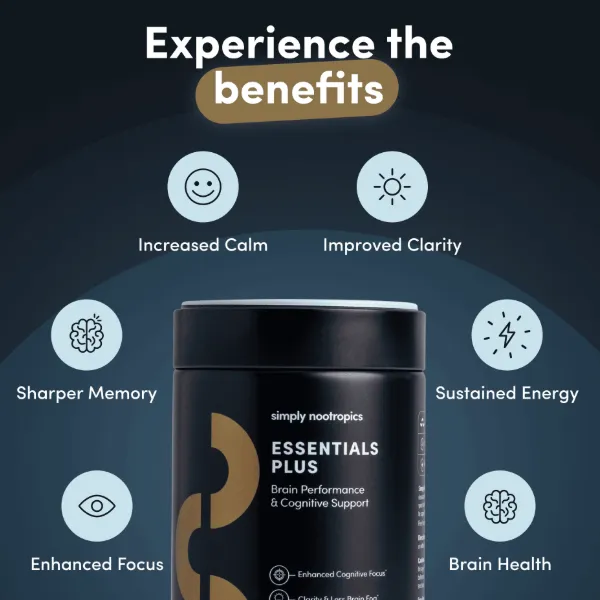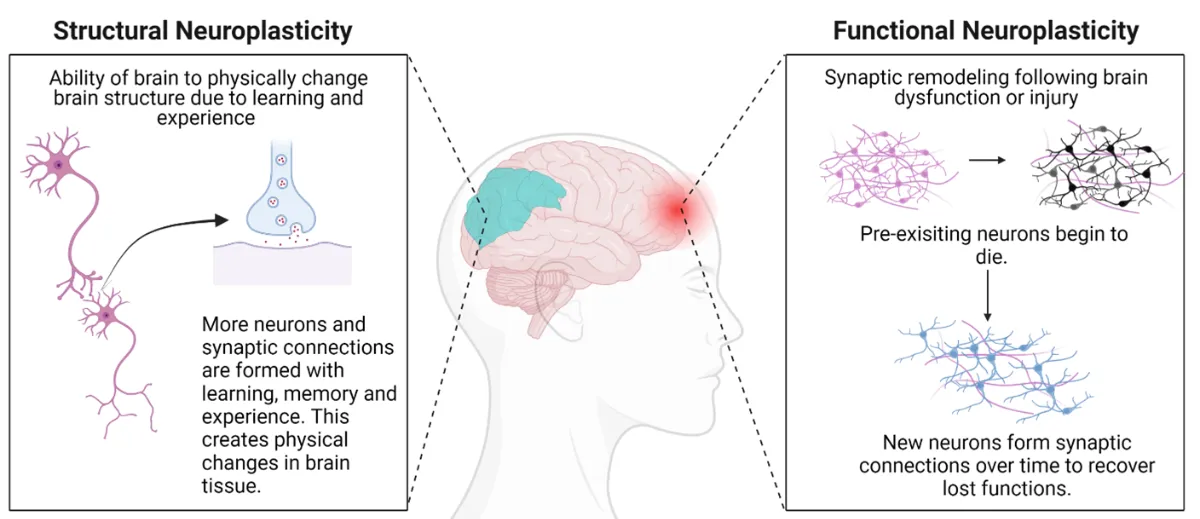Neuroplasticity and nootropics
Katrina Borthwick - 21st July 2025
Neuroplasticity refers to the brain’s ability to reorganise its connections differently through learning, or through adaptation to injury or sensory or cognitive deficits. It has also been a long-standing target for people selling all manner of techniques, apps, tools and supplements purporting to harness neuroplasticity to rewire our brain, improve brainpower or even gain new abilities.

Nootropics
According to Life Extension, a website selling brain-boosting supplements called nootropics, our brains can be hacked (known as “neurohacking”) through “a variety of complementary strategies, including dietary and lifestyle changes and the use of nootropic drugs and supplements, brain-training activities and games, and neurotechnologies (e.g. electrical stimulation devices) designed to increase brain fitness”. Their Australian branch will sell you 30 pills for about AU$30. The pills contain gotu kola, bacopa, and marigold extract.

Simply Nootropics in New Zealand will sell you 60 capsules in a fancy tin for $69. Their pills contain Ashwagandha Root, Brahmi Leaf (aka Gotu Kola), CDP Choline, L-Theanine (from green tea), Lion’s Mane Mushroom (E), Panax Ginseng, Rhodiola Rosea and NZ Pine Bark. We have also previously covered the Arepa drink, which claims to be a nootropic brain drink but only contains blackcurrants :(
It might be tempting to give it a go with these products, but it is important to note that such supplements are not without risk. Ashwagandha root is a highly likely cause of liver injury, and Gotu Kola/Brahmi Leaf is a probable cause. Some of the other ingredients, such as Rhodiola Rosea and Pine Bark, have previously shown up in concoctions such as Herbalife, which is a well known cause of liver injury for which the mechanism is unknown.
As for the rest – there are various studies linking some positive effects on mice to some of the ingredients, like Lion’s mane, CDP Choline and for green tea in humans. But there’s nothing that is really proven, and there is certainly no guarantee that the formulation in any of these supplements will do anything at all. Caffeine is a natural stimulant, so it makes you feel more awake, and also ramps up the release of some neurotransmitters, which helps with short-term memory and learning. If overdone, for example by taking caffeine pills, then there are health risks for that too.
There is no strong evidence that any of the supplements being sold as nootropics are helpful, or even totally safe. Most reported effects are, in reality, nothing more than the placebo effect.
But wait, if you read Psychology Today it will tell you the most powerful nootropics that enhance cognitive performance are stimulants such as Ritalin and Adderall, often used to treat ADHD. They outperform any natural stimulants, such as caffeine, by far. However, these drugs are also not totally safe, and are themselves a probable cause of liver injury, coming with cardiovascular effects and the risk of addiction.
I’m on board with the idea of caffeine having some sort of temporary brain-boosting effect, but I don’t feel like it’s giving me any kind of superpowers. But taking speed (Ritalin) to boost cognitive function seems like a bit of an extreme move too. If I did take it, would it really make me super smart and give me mean skills?

Neuroplasticity
The evidence suggests that neuroplasticity, while very real, has limited utility. Brain-training exercises only train the brain in the activities being undertaken. For example, solving shape puzzles on a brain-training app won’t make you better at learning a language, doing maths, remembering things or solving problems at work. But it will make you better at solving those particular kinds of puzzles.
We are also seeing that the functions of various parts of the brain do not essentially change. There is no mechanism by which part of the brain, for example the visual cortex, could adapt to be able to move muscles. But, in the absence of sight, the visual cortex could adapt other ways of mapping different sensory input onto a sort of visual map. This explains the reports of some blind people being able to develop a type of echolocation. This is not possible in fully sighted individuals, as the visual cortex is already in use, and its visual stimuli dominate. Another example would be people operating artificial limbs or keyboards electronically. These are bootstrapping the unused motor cortex for a particular limb or digit. The remaining parts of the brain may be able to pick up the functions of damaged parts in the event of a brain injury – but only if they already have the same function.

Conclusion
What does that mean for the idea of me taking speed (amphetamines) to improve my brain? I think it probably just means I would be able to do what I can already do now in a more alert manner, for a limited amount of time - but as a consequence I might not last as long on this good Earth. So, if multitasking allows me to do more things badly, speed might allow me to do more things badly, faster. As I up the dose, I might also run the risk of paranoia, anxiety, psychosis, hostility, aggression, and suicidal or homicidal ideation. Fun times.
It feels to me like neuroplasticity and nootropics aren’t really linked in a useful way that can result in any kind of super mind-powers. So, essentially, it’s not worth the money you pay. I guess I could try switching my coffee out for green tea? But green tea kind of just tastes like boiled leaves to me and… well, speaking of which, I am going to go put the kettle on.
